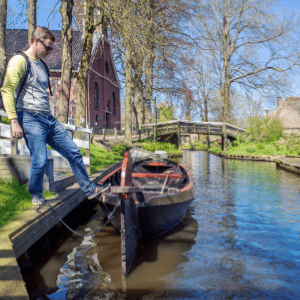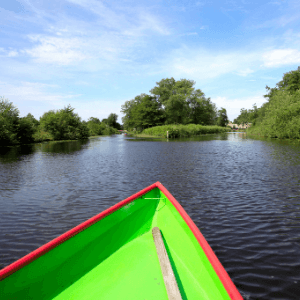The wise Chinese Lao Tzu said, “A journey of a thousand miles begins with a single step.” This is so true on many levels. It can be about life or about traveling to your favorite destination.
That single step snowballs to hundreds and thousands more, and eventually, you trip on a rock or hurt yourself. When traveling, something is bound to go wrong if you don’t prepare well.
Traveling and vacationing can be your greatest high, but you are bound to meet obstacles and problems along the way. It doesn’t matter if you’re a beginning or seasoned journeyman.
What can go wrong when travelling? Knowing about them is solving half of the problem. Here are 11 biggest travel mistakes to avoid (for newbies and expert travelers).
Biggest travel mistakes to avoid for newbies
As a first-time traveler, you are bound to make mistakes. There is no shame in that. But to save you from costly blunders, consider these travel tips.
1. Overpacking
Going on your first trip can’t be more exciting. You get all pumped up that you could lose some ounce of common sense and start packing more than you need. It’s tempting to bring all your favorite clothes, pants, and shoes.
You imagine yourself looking nice and cool every minute of your journey and so you try to squeeze in all your favorite outfits. Before you know it, you can’t even haul your luggage to your car.
Packing too much is a hassle, not to mention you could get stuck with high baggage fees for accidentally exceeding the weight limit.
Take out half the clothes you originally packed, you can’t wear all of them after all. Worried about running out of clothes to wear? You can always do some laundry.
2. Planning too many activities
Again your excitement could cloud practical planning that you end up having to do so much that it tires you out. Planning too much and staying too strict on your itinerary could wear you out half the day in.
You could also end up too busy to find hidden gems along the way. Don’t be too hard on yourself. The hassle of having so much to do can be stressful. It’s good to plan your trip, but leave some time to relax, meet some locals, get lost in the city, go on a detour, and take in the beautiful scenery.
3. Booking your trip too early
Here is another travel mistake newbies commonly make for being too excited to go – booking a trip too early. You would like to get it over with early on so you can do some shopping f and then start packing.
It makes sense to book a flight early to get discounts from airline companies. However, in most cases, you could end up paying more. When traveling, the early bird doesn’t always get the worm.
It is good to hold up a bit and wait for the deals.Wait about two or three months before your trip to book.
Airlines normally raise or lower prices based on demand. When going on a cruise, companies throw out some last-minute discounts to make sure they fill up the boats and tours before they start sailing in a few days. Setting off with a boat half full is bad for their business.
4. Dining near a major tourist site
Newbies love to see all the coolest tourist sites. This is all good, but almost always, everything you see for sale in major tourist sites is twice or thrice more expensive.
The food, specifically in or near any major attraction, will be very expensive but not as delicious as those at street corners or other restaurants elsewhere. Restaurants located in prime locations pay big for rent, and they have to get back their investment somehow.
Avoid restaurants with glossy menus in multiple languages.Also, restaurants know that you’re too busy enjoying the sites so you won’t mind spending more on a less tasty dish.
A piece of advice for travelers: after enjoying the site, walk at least five blocks away to get cheaper but tastier food, and maybe even more authentic local servings.
5. Exchanging money at the airport
The airport has the worst exchange rate. Clearly, airports take advantage of the fact that foreigners who may be completely unaware of the best rates and where to get them pass by the airport all the time.
To get the best rates, go to the city and use an ATM or credit card or the bank downtown. Better yet, have your money exchanged at your bank at home before you leave. Otherwise, when on the road, stick to plastic as much as possible.
6. Turning down hostels
Newbies assume that hostels are unclean, unhygienic, smelly, and full of bugs. It’s a common stereotype, but none of it is true, especially when backpacking and smart traveling are common.
Modern hostels have good air-conditioning, movie rooms, video games, laundry facilities, free Wi-Fi, and organized tours and private dorm rooms for group accommodations.
Hostels are practically hotels, but with fewer amenities and cheaper. Consider staying in a hostel if you wish to stay longer in your destination and be in a community with like-minded travelers while saving a few dollars.
7. Be a responsible and respectful traveler
When visiting a new place, always respect and be mindful of cultural norms and local traditions, as well as the environment. Observe common travel ethics. Always be considerate and respectful everywhere you go.
Leave the places you visited cleaner and better than how you found them.
If you can, learn some respectful words or phrases in the local language to make people smile and happy to have you.
8. Learn some travel hacks
Learn from backpackers and expert travelers. They have seen much of the world, learned different cultures, and developed practical hacks to help beginning travelers avoid the biggest travel problems. Here are 5 cute travel hacks from a backpacking blog:
- Roll your clothes, not fold. Instead of folding your clothes, roll them up to make little tubes. Not only can you save space, but you also avoid getting your clothes wrinkled.
- Charge your phone through a TV. Most modern TVs have a USB port where you can plug your phone to charge.
- Email yourself a scan of your passport. Nothing is worse than losing your passport in a foreign country. Emailing yourself a copy is easier and safer than always carrying around printouts.
- Only unpack what you need. To save on packing and repacking time, take out only what you’ll definitely need in each hostel at that specific time or day.
- Run off your jet lag. Some expert travelers will say jet lag isn’t real. Perhaps it is or isn’t, but if you’re not feeling like yourself when arriving in a new time zone, that’s probably jet lag. Apparently, running or a bit of exercise before your trip can stave off the jet lag.
Yes, even expert travelers make mistakes. The biggest travel mistake, of course, is being too familiar or overly confident about the process that you tend to forget or overlook something. Here are some advice for travel safety precautions.
9. Not booking enough time between flights
Expert travelers have a good sense of an airport’s layout. This could make you overly confident that you can sprint your way to the next gate to catch a connecting flight. However, flight conditions can be unpredictable.
One of your flights could get delayed anytime and this could force you to rush through an unfamiliar airport to make your connecting flight.
Worse, you might not make it in time.Book for at least a two-hour layover to be on the safe side. Also, plan for the security checks, snacks and maybe a little window shopping inside airports.
10. Not getting local currency at the airport
Expert travelers are wise not to exchange money at the airport, but they could be too confident to assume they have local currency in their pocket already.
You’d need local money to get on public transportation or any minor emergency. Take a few minutes to get some money from an airport ATM. Then again, use your credit card whenever possible.
11. Not buying travel insurance
Getting travel insurance may seem like an unnecessary added expense, but you never know what might happen. Travel insurance covers cancellation fees. It is always wise to get travel insurance to cover any unexpected hassles that disallow you to travel.
Some plans also cover emergency medical expenses outside your country. Simply put, travel insurance protects you when you are overseas. Without coverage, you could end up losing thousands of dollars to pay for emergencies or unplanned costs.
12. Not checking visa requirements
Not all airports let through every arriving nationality. Being rejected entry to a foreign land can be very frustrating and expensive. It will only take you a few minutes to check the visa requirements online.
13. Not visiting the local tourist office
Backpackers feed off from the locals. They flow with what they learn and experience on the road, avoiding common tourist traps and traveling off the beaten path.
Almost always, they forget or even avoid checking out the local tourism office. Not many tourists do, in the first place.A local tourist office gives out advice on everything you need – maps, current events, festivals, costs, and so on. People working there are paid to help you enjoy your journey.
A reminder on Covid-19
Travel and tourism has changed drastically because of Covid-19. The way passengers are checked at airports or received at hotels have changed. Establishments and companies have become more careful and thorough with the health checks.
Also, travelers need to get accustomed to new health protocols such as wearing a face mask when asked or showing vaccination passes when required.
Things could be this way for longer than most people thought or go back to how travel used to be quicker than what experts are saying. Nobody knows exactly, but these days, it’s smart to keep in mind Covid-related safety precautions when traveling.In life, committing mistakes can be beneficial as it turns you into a better person.
Regardless, you have to take that first step, as Lao Tzu said. When traveling, however, mistakes can be very costly, frustrating, and dangerous. It is best to get familiar with these 12 travel mistakes to avoid (for newbies and expert travelers), and prepare for them. Start planning your trip … wisely!
















